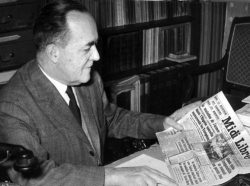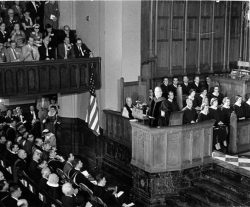Charles Westphal (1896-1972)
Charles Westphal was a pastor of the Eglise Réformée de France (he was a man of great discernment and sound judgement). Not only will he be remembered as someone whose great spirituality had a deep influence on many people, but also as a highly cultured man in the field of literature.
Charles Westphal's university studies, his war experience and his early life as a pastor
Charles Westphal was born in Montpellier in 1896 and studied classics in Paris. He was one of the first to volunteer as a soldier in the 1914-1918 war and was badly wounded twice. The army awarded him with the “croix de guerre” for his heroic actions during the conflict.
When the war was over, he studied theology, first at the protestant university of theology in Paris, then in the Union Theological Seminary of New York and finally in Edinburgh.
His first post as pastor was in Châtillon-en-Diois in the Drôme and in 1929 he took over from pastor Pierre Maury as General Secretary of the Fédération Française des Etudiants Chrétiens, also known as the Fédé. He stood out as being a leader who had great literary knowledge and who paved the way to ecumenicism. He was an avid reader of Kirkegaard and Claudel.
He was pastor for a time at the Eglise Réformée de Pentemont (Paris) and then in Grenoble he was involved in theological training for the laity from 1939 to 1945.
This is when he wrote Cahiers d’Etudes Juives, while helping students who had joined the maquis and the resistance movement ; in addition he greatly contributed to the organization which was enabling many Jews to escape to Switzerland.
In 1945 he was pastor of the Eglise Réformée du Saint Esprit in Paris, as well as taking on many other duties.
He succeeded Pierre Maury as Director of the protestant theological review Foi et Vie in 1945 ; in 1947 he was named vice-president of the Fédération Protestante and was president from 1961 to 1970, taking over from Marc Boegner .
Charles Westphal was a theologian who strove to bring about ecumenism
The Swiss thelogian Karl Barth made a great impact on Charles Westphal and many other pastors of his generation. Charles Westphal, together with Pierre Maury, was the first pastor to introduce his work to theology students in France ; one of his texts (the first to be translated into French) was published in Le Semeur, a review of the Fédération des Etudiants Chrétiens in 1932. It was Charles Westphal who inspired Barth to write the letter Aux protestants de France, which gave great support to those who resisted the nazi movement.
Charles Westphal’s sermons were a good example of Karl Barth’s theology, centred on Christ “enabling us to experience the immediate reality of God’s grace which would be fully revealed at Christ’s second coming” ; his preaching was infused with hope and a spirit of adoration.
However, he was also preoccupied with the well-being of protestant minorities, in particular the Baptists, whose piety he admired.
He was a keen defender of the recently founded ecumenical movement.
He instigated the founding of the Laboratory of Theological Research which he co-directed with Father Villain and Father Congar and took part with them in many discussions.
He was present at the ecumenical meetings in Amsterdam (1948), the founding assembly of the Ecumenical Church Committee in Evanston (1954) and New Delhi (1961). He was nominated member of the Central Committee of the Ecumenical Council of Churches in 1986.
Bibliography
- Books
- MAYEUR Jean-Marie et HILAIRE Yves-Marie, Dictionnaire du monde religieux dans la France contemporaine, Beauchesne, Paris, 1985-, Tome 9
Associated notes
-
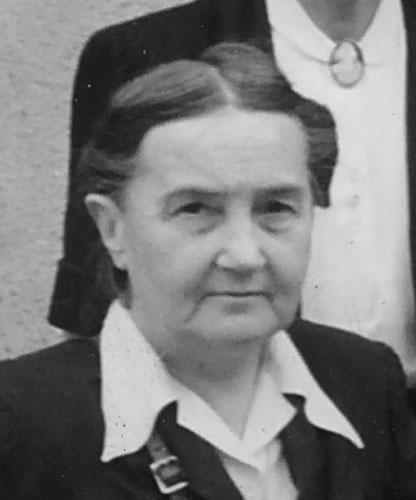
Protestant women in the Fédé movement
-
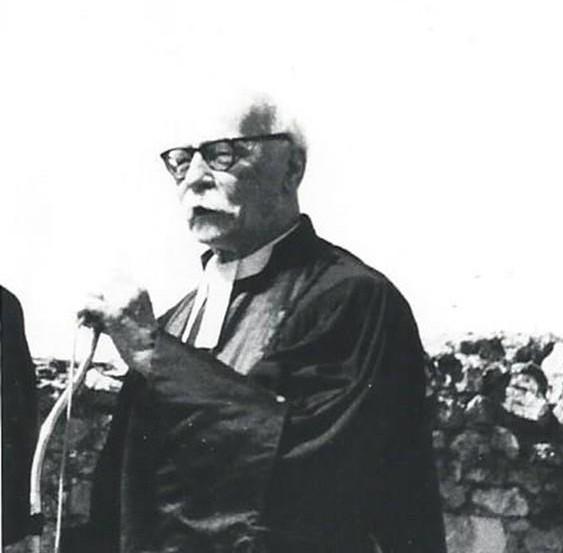
Marc Boegner (1881-1970)
Marc Boegner was a pastor with outstanding charisma, and a prominent figure in contemporary French Protestantism. He also acknowledged its various tendencies, and very early accepted big responsibilities. During the... -

Charles Gide (1847-1932)
Charles Gide was a theorist of social economy and a leading figure in the French economic cooperative movement and Christian socialism. A spirit of solidarity pervades all his work. -
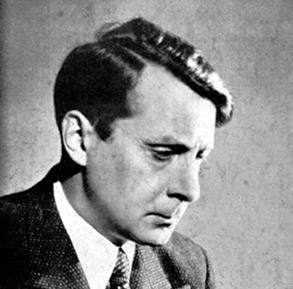
Charles Munch (1891-1968)
Charles Munch was a great French conductor. -

Charles Scheer (1871-1936)
The life of this Reformed pastor from Mulhouse was marked by his political commitment as a Francophile and by his role in the ecumenical movement. -
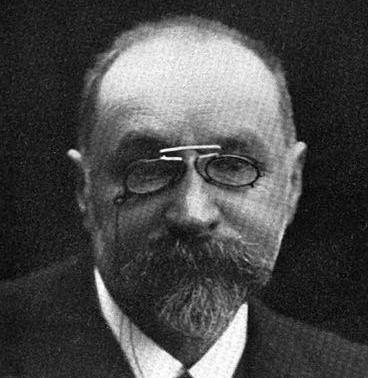
Charles Seignobos (1854-1942)
Charles Seignobos, a protestant, and a leading figure of the French school of history. He was known for his scientific precision and neutrality in matters of religion.

